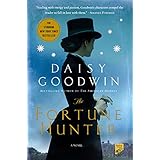Appeal Factors for
E-books and Audiobooks
As a reader of both books and e-books and a listener to
audiobooks, I think each of the mediums has different appeal factors. Dunneback and Trott note: “The format you use to access the story
expands the appeal factors of the context” (Dunneback, K., Trott, B.). However, I find the medium of audiobooks to
be very different from that of reading a book. It is a very enjoyable experience,
however; it is not reading, it is listening to someone else’s interpretation of
a written book. The experience of
reading in paper format or electronic are unique experiences; however, I find
the differences much less than that of reading a book versus listening to an
audiobook.
In their article, Dunneback and Trott note some of the
different appeal factors that reading in electronic format and specific devices
change such as the size, weight, flipping or turning pages vs. pressing a
button, covers and accessories. One
thing they note is that you can’t just flip back and find a certain passage or
part in the book just by flipping through as easily as you can in a physical
book. When I had more free time in my
life, I decided to read David Foster Wallace’s Infinite Jest. However, it
is a huge novel and I’d check it out from the library and then someone would
put a hold on it and I finally realized I would never be able to read it unless
I purchased the book. Not thinking about
the difference in appeals, I purchased the e-book. I briefly attempted to read it on my e-reader
but it is very frustrating because it is filled with references and appendices
and footnotes and while I can deal with that in a physical book, I found it
very difficult with the e-book. However,
personally I don’t find that my reading experience is greatly changed by using
my e-reader. I do think I read faster
and perhaps reflect less on the process as I am reading because I am not
physically engaged in the same way.
I love audiobooks; however, I find the experience completely
different from reading a book. I feel
about it almost the same way I do about seeing a movie before reading the
book. If I love a book and I know the
audiobooks are also good, I will usually read the book first. I love the
Outlander books and had heard the narrator of the audiobooks (Davina Porter)
was great, but I hesitated to listen to them for a long time because I didn’t
want to change my perception of the characters when I read later books. However, they are some books I like in both
formats, some I have loved when I read but didn’t like the audiobook and some
books I have listened to on audiobook because I love the reader but really have
no interest in reading the novels. Mediatore
states: “A fifth appeal factor for the
recorded format must also be considered—audible presentation”. (Mediatore, K., 2003).
When discussing pace and narration, Mediatore goes on to
say: “Consequently, a poor match between
the pace of the story and the pace the narrator uses can cause a reader to stop
listening to an audio book” (Mediatore, K. 2003). I like Janet Evanovich’s Stephanie Plum
books, especially on audiobook. However,
I only like the narrator starting at about book 6 or so. There were a couple narrators previously that
I couldn’t listen to but someone told me the later books were much better, and
I found I loved these on audiobook. The
pace of the narrator as well as skill can change the whole experience.
I guess I love books in all formats and I find them all
enjoyable—just a little bit different.
Sources
Dunneback,K., & Trott,B. (2011). E-books and Readers’ Advisory. Reference
Appeal Factors for E-books and Audiobooks
& User Services
Quarterly, 50 (4), 325-9.
Mediatore, K. (2003).
Reading with Your Ears: Readers’
Advisory and Audio Books. Reference & User Services Quarterly,
42(4), 318-23.
